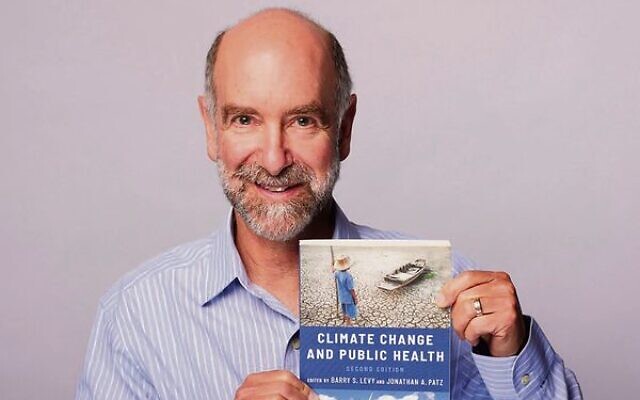A golden opportunity for clean energy
"When you think about the multiple pathways through which climate affects our health, I view this as the greatest environmental public health challenge of our times," says Professor Jonathan Patz.
Professor Jonathan Patz, chair of health and the environment at the University of Wisconsin-Madison a visiting fellow at Monash University and a keynote speaker at the recent World Health Summit in Melbourne has always been interested in biology and the environmental factors that determine health.
He is medically trained, and double board certified, first family medicine, primary care, and then environmental and occupational medicine.
His present focus on climate change and health began in 1993 when the United Nations Intergovernmental Panel on Climate Change, (IPCC) approached the World Health Organisation saying the first climate change report had no health chapter and one was needed.
Patz just happened to be there. “I had studied this and told the director, who responded, why don’t you organise the writing team and get it going?” Patz explained.
“When you think about the multiple pathways through which climate affects our health, I view this as the greatest environmental public health challenge of our times,” he said.
More than 20 million people die prematurely each year from the effects of fossil fuels. “I can’t speak to climate deniers because I’m not a climate scientist. I am a health scientist.”
According to Patz the other deniers, mainstream health people who believe there is a vaccine for anything, are short-sighted.
“We can always keep mopping up the mess on the floor with treatment. But if we’re not thinking about turning off the faucet, going upstream and solving the problem, and doing true primary prevention, then we’ll just keep treating symptoms over and over again.”
Patz believes that in the energy sector, there is a golden opportunity to get clean energy, reduce air pollution, and save millions of lives.
For the first time in history, as of 2019, the cheapest way to generate electricity now is renewables and batteries.
“It is absolute insanity to be burning coal for electricity. And this is where Australia has some responsibility.
If you account for the coal exports from Australia, that changes Australia’s status from being the 15th largest emitter to the fifth largest emitter of CO2 in the world.”
Patz has been on sabbatical in Melbourne for almost three months. He has noticed the bicycle trails, pedestrian-safe walk areas, the trams and trains and the city’s terrible traffic and urban sprawl.
“This is where physical fitness, cities designed for people, not just for motor vehicles is a golden opportunity for health. Think of obesity, diabetes, cancer, and dementia. Exercise not only burns calories but reduces depression, dementia, cancer and heart disease.
“Contracting muscles are chemical factories for anti-heart disease and anti-cancer chemicals.”
Patz said the good news is we already know the solutions. Now it is a matter of politics. The youth movement is very strong, and that’s welcoming and economics is shifting.
“You can’t tell people what to do. And the right choice has to be the easy choice.”


comments